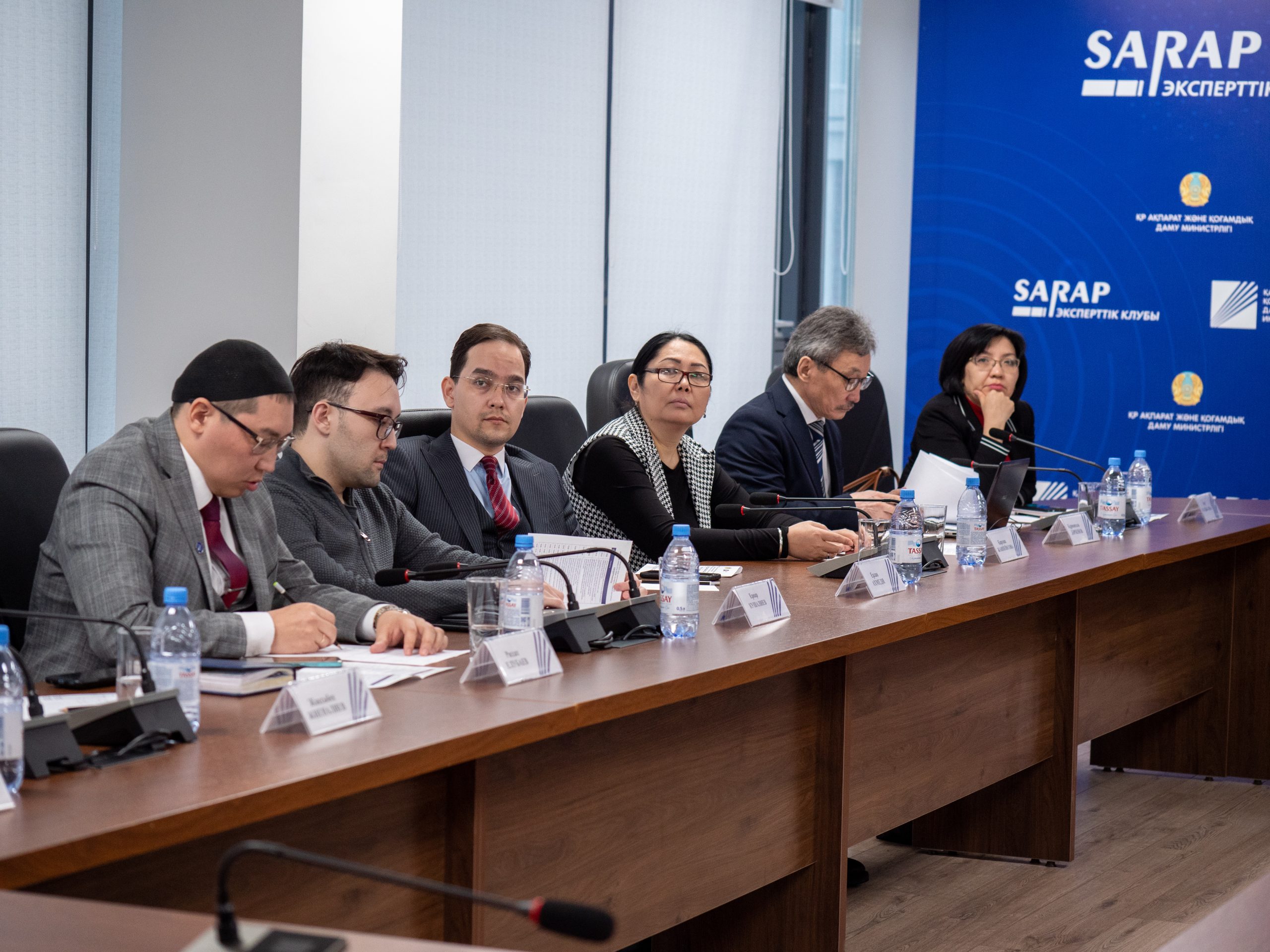ASTANA – Kazakhstan Institute of Social Development hosted an expert meeting on Feb. 23, exploring what the upcoming parliamentary election means for the country’s developing political landscape, reported the institute’s press service.

Sarap platform hosts regular expert meetings on different matters that are taking place in the country. Photo credit: kipd.kz.
The experts exchanged their views about the March 19 elections to the Mazhilis, the lower chamber of the Kazakh Parliament, and the maslikhats – local representative bodies. The discussion focused on the changes affecting the electoral system and analyzed how the election will affect the socio-political situation in the country. The meeting takes place as parties and single-mandate candidates continue their electoral campaigning.
More than 12 million citizens are registered to vote in the election. There are 283 candidates on party lists and 435 candidates running in single-mandate districts in the Mazhilis election. With the constitutional changes adopted last year, citizens got an opportunity to self-nominate themselves, given that they met the requirements set by law, including being at least 25 years old, being a citizen of Kazakhstan, and living in Kazakhstan for the past ten years.
Talgat Kaliyev, director of the Institute of Applied Ethno-Political Research, said that campaigning should feature messages that are understandable to the electorate.
“There are many complicated sentences in the parties’ election programs. If we talk about the campaign itself, it should be divided into several stages. I hope that it will be heterogeneous because, so far, the candidates and parties are just beginning. Just yesterday, I was studying the parties’ websites and could not find the updated version of the programs they were supposed to post. Now it is time to actively present their position in the information field. So far, they are not doing it,” said Kaliyev.
According to Aidar Amrebayev, director of the Center for Political Studies at the Institute of Philosophy, Political Science and Religious Studies, strengthening the voice of civil society in the decision-making process is a major concern for Kazakh society.
The public has high hopes for single-mandate candidates, expecting them to offer alternative views to existing problems.
“It is no secret that most of the parties that are now registered and have the opportunity to participate in the electoral process reflect the position of the state. We expect an alternative position from candidates on majoritarian lists. That is why there is more public interest in those candidates who run in single-member districts,” said the expert.
A mixed electoral system with self-nominated candidates is not a novelty for Kazakhstan. The system functioned in the country between 1998 and 2007. The nation’s first convocation of the Mazhilis comprised 67 deputies elected from single-mandate districts. The second (1999-2004) and third (2004-2007) convocations of the Mazhilis consisted of 77 deputies – 67 deputies from single-mandate districts and ten deputies from the party lists.
It can, however, be more challenging for self-nominated candidates to gain visibility and support, as most lack the institutional support and resources that established political parties have.
The return of the proportional-majoritarian electoral system is “one of the most important democratic steps,” according to Askhat Kenessov, a political scientist and representative of the Kazakh Institute of Strategic Studies in Aktobe.
“This is because it gives a great opportunity to individuals to nominate themselves for the deputies through single-mandate constituencies, and today that process is being implemented. At the same time, genuine democratic political competition and political struggle occur among self-nominated candidates,” he said.
The expert emphasized the changes in the electoral legislation that foster political competition and a plurality of voices. The threshold to get seats in the Mazhilis is now five percent instead of the previous seven percent, and the procedures to register a party have been simplified.
“It [these changes] contributes to forming a new electoral culture among the Kazakh citizens, significantly increases voters’ interest in election processes, encourages participation in elections and promotes the constructive political activity of citizens,” he added.


